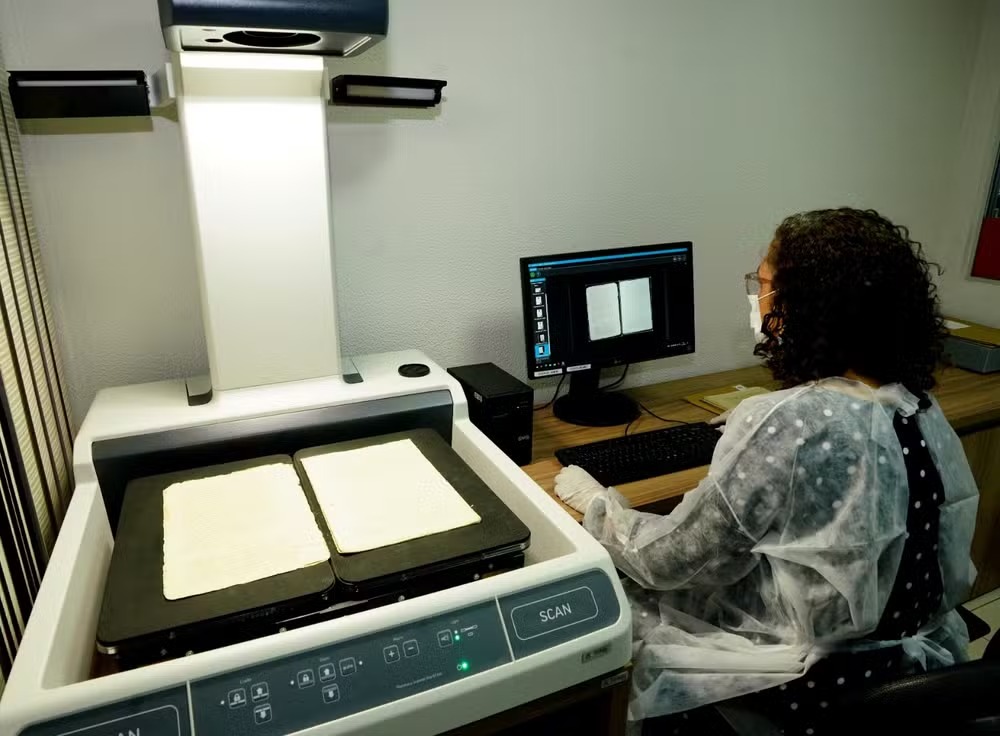
On the date of the National Black Awareness Day (November 20th), the Superior School of the Judges of the State of Tocantins (Esmat) is making available a historical document from the Judiciary, from 1858, referring to an inventory process with a petition for the release of an enslaved person. The documents were digitized after Esmat invested in modern, state-of-the-art equipment for cataloguing cases and historical objects.
Referring to the district of São João da Palma, today Paranã, a municipality located in the southeastern region of the state of Tocantins, the original text reveals the story of Paula, a slave who won her freedom thirty years before the Golden Law. The process, carefully preserved, is a testimony to the struggle for freedom in times of slavery and also a powerful historical collection from the period of colonial Brazil. Dated 1858, the document records the petition of Paula, a slave belonging to the heirs of Bento Rodrigues Lourenço. Valued at 60,000 réis, Paula pleaded for her freedom with the judge of orphans, supported by the Notice of December 27th, 1855, which allowed her to be freed on payment.
Content of the document
The general curator, Antônio Ribeiro da Fonseca, recognized her right to freedom, citing the Constitution and civilized nations. The Judge then ordered that the money be paid into the public coffers and the letter of freedom be issued. This document, along with others from the collection of the Judiciary of the state of Tocantins, is being made available for public research and consultation. The initiative, in line with the Resolution 324 of the National Council of Justice of 2020, aims to preserve institutional memory and ensure the democratization of information.
For Justice Marco Villas Boas, General Director of Esmat, the availability of the content of the document as well as its transcription reveals the concern of the Judiciary of the state of Tocantins to promote access to information and the duty of memory of the enslaved populations that inhabited the territory where the state of Tocantins is today.
“Preserving documentary memory is essential for building the history and identity of a nation. Every day, we delve deeper into the process of the identity of the state of Tocantins without ever ceasing to search for our origins, our references. These documents allow us to revisit the past, shed light on injustices and rewrite history in a new light,” he said.
Processes
The case of Paula is an emblematic example of resistance and the search for freedom in times of slavery. Her story, previously obscured, can now be known and studied, contributing to the construction of a fairer and more inclusive historical narrative. The district of Porto Real, now Porto Nacional, will also make historical documents from the 19th century available. The initiative aims to broaden access to the memory of the state of Tocantins and strengthen the link between the judiciary and society.
The historical documents of the districts os Paranã and Porto Nacional represent an invaluable legacy for understanding the past and building a more conscious future. Access to these archives opens doors to research, studies and debates on the history of the state of Tocantins, promoting citizenship and knowledge.
To access the original document, click here.
To access the transcript, click here.




